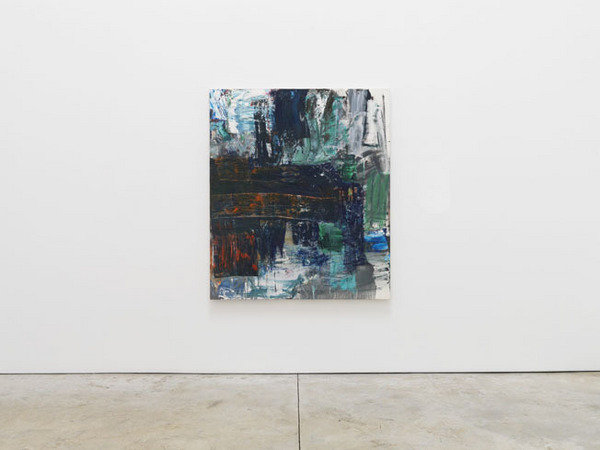Louise Fishman
dal 12/9/2012 al 26/10/2012
Segnalato da
12/9/2012
Louise Fishman
Cheim & Read, New York
Many of the paintings in this exhibition were inspired by her recent stay at the Emily Harvey Foundation artist's residency in Venice, Italy. This new works are infused with theatricality, no doubt inspired by her Italian sojourn.

Cheim & Read is pleased to announce an exhibition of recent work by New York
painter Louise Fishman. The show will be accompanied by a full-color catalogue
with an essay by Judith Stein.
Known for gestural abstractions characterized by unique intersections of color and
space, Fishman has long recognized the effects of personal, cultural and political
experience on her work. Many of the paintings in this exhibition were inspired by
her recent stay at the Emily Harvey Foundation artist’s residency in Venice, Italy.
Fishman’s deep understanding of art history—her mother and aunt were ar tists
(both studied at the Barnes Foundation) and she grew up among art books and
art-centric discussion—was buoyed by the aged, layered streets of Venice, where
one of her favorite artists, Titian, once walked. Her new paintings are infused
with theatricality, no doubt inspired by her Italian sojourn. Compositions echo
traditional ascension or crucifixion motifs, confirmed by painted swaths of upward
and outward movement. Halos of paint radiate from the cores of Fishman’s canvases, allowing for unexpected
drama. Blue saturates many paintings, providing a stepping stone between works. The color is evocative of the
Virgin Mary’s lapis robes, and of Venice’s ubiquitous water.
While in Venice, Fishman limited her studio practice to drawing and watercolor. With a camera, she recorded her
impressions on daily walks. It was upon returning to her New York studio that the effects of the residency became
pronounced in her work. Often painting three or four canvases at one time, Fishman’s characteristic exploration
of material and technique coincided with a marked shift in gesture and mark-making. Picture postcards of Venetian
paintings were tacked to the studio wall, and paintings like Titian’s Assumption of the Virgin made their influence
known. The works Assunta, Calle dei Cinque, Angel and Stone, and Calle Maria Callas directly reference her Venice
stay, the last also citing her love for opera. Fishman’s experimental use of materials—nubby jute canvas in some
cases, the application of paint with her fingers in others—is consistent with her oeuvre and adds depth to her
multi-layered, carefully constructed compositions.
Powerful in physical presence, Fishman’s work is remarkable not only for its technical mastery, but also for its
embodiment of both conscious and unconscious elements. Her abstractions are emotionally evocative—Fishman
may reference a specific personal experience, but the feeling she conveys can be collectively understood.
Punctuated by intensely focused energy, her work is continually re-charged by her viewers’ reactions. Born in
1939, Fishman was an active participant in the feminist movement and is an advocate of gay and lesbian rights.
She unapologetically confronts the male-dominated history of artistic discourse: her decisive re-appropriation of
Abstract Expressionism repositions it for a different era and gender. Fishman’s Venetian paintings claim a bit of
history as well: her transformation of the Virgin’s assumption into a richly textured abstraction of blues and grays
weaves threads of artistic inspiration for a new audience.
On view in New York at Tilton Gallery, Louise Fishman Five Decades, curated by Simon Watson opening September
5. On view at the Woodmere Art Museum in Philadelphia, Generations: Louise Fishman, Gertrude Fisher-Fishman, and
Razel Kapustin, October 13, 2012 – January 6, 2013.
Cheim & Read
547 West 25th Street New York, NY 10001
Gallery Hours:
Tuesday - Saturday 10 am - 6 pm



